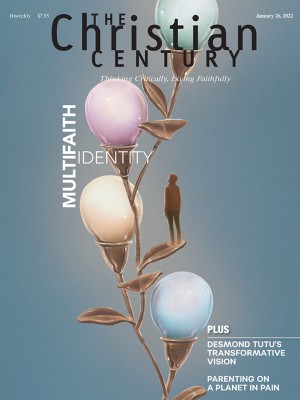Is there an antidote to White grievance?
It’s hard to imagine this fear-driven resentment responding to outside counsel.

I’m troubled by the sharp rise of White grievance and resentment in America. It doesn’t take much to spot the politicians and pundits who use coded language, dog whistles, and conspiratorial tweets to fuel this resentment. The worst excesses seem aligned with a large segment of one political party. Conservative columnist Michael Gerson describes the current GOP as blatantly repositioning itself as “an instrument of White grievance”—and pursuing as its main legislative agenda “the suppression of minority voting.”
The why of all this misplaced White grievance appears to be anchored in two realities. First, there is, for many at least, a psychological sense that America is losing its Whiteness—what Toni Morrison once referred to as “the horror of lost status.” As immigrant and ethnic minority populations grow and White communities gradually lose their numerical advantage, a sense of White dominance begins to disappear. That a way of life might be receding, or a psychological sense of privilege or prestige might be waning, is enough to cause many to romanticize the past. Various boogeymen, from immigration to affirmative action, are viewed in terms of a theft of White resources. Loss is basic to this zero-sum view of racial identity.
Read our latest issue or browse back issues.
The other reality inspiring White resentment is more aggressive. It’s a fear-based panic that typically involves some form of rage. Most White grievance is built on a perceived sense of being under siege. The aggrieved think of themselves as a persecuted people, wronged and under attack. In order to cultivate White victimhood, purported enemies must be fashioned or imagined—enemies who can then be targeted and attacked.
It’s no easy task to propose a change of mind to aggrieved White folks. What seem to me like obvious Christian impulses for inspiring a more gracious embrace of human diversity end up having little impact on resentment-filled White people—many of whom consider themselves thoroughly Christian. Given the close link between White grievance and partisan identity in recent years, it’s hard to picture these individuals receiving much, if any, outside counsel as an antidote to their distorted worldview.
Several months ago, though, I had a long conversation with travel host Rick Steves. What he said about travel and fear that day struck a chord with me. His words contained refreshing wisdom that now feels especially appropriate for those carrying White grievance around. “Travel is a way to broaden perspective,” said Steves cheerfully. “It puts us in solidarity with people whom we otherwise wouldn’t appreciate. It makes us more tolerant. It challenges our ethnocentricity. It inspires us to celebrate diversity.”
Digging deeper into the crisis of people scared by diversity, he continued: “Fear, to me, is for people who don’t get out very much. If you take the most frightened people we know in our communities, I bet they’re the people who travel the least. They’re not interested in enlarging their understanding of others. They don’t know what it means to be surrounded by other people who look and think differently.” Then, with deep seriousness, he added, “Travel is fatal to bigotry, prejudice, and narrowmindedness. It’s not for wimps.”
“Not everybody can travel, of course,” Steves noted. “But there are a thousand ways to have a traveling mindset.” Discovering that mindset is an assignment for all of us, but an especially urgent one for anybody inclined toward racial resentment.
A version of this article appears in the print edition under the title “White fear.”






